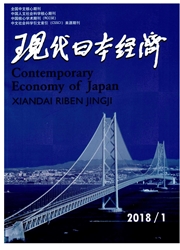

 中文摘要:
中文摘要:
本文基于全国198个城市的样本数据,运用二元logistic回归模型,从人力资本、社会资本、心理资本三个维度对新生代农民工市民化意愿影响因素进行了实证分析。结果发现,人力资本中是否参加过培训、培训次数、拥有的技能数以及技术等级四个变量对新生代农民工市民化意愿有显著的影响。而学历水平没能通过显著性检验。社会资本中的外地同学亲戚数和参加社会活动的数量对新生代农民工市民化意愿有显著影响,而当地同学亲戚数没有通过显著性检验。心理资本中城市归属感、本地人态度、对城市同龄人看法三个变量对新生代农民工市民化意愿有显著影响,而对未来变化的预期及生活满意度没有通过显著性检验。因此,在新型城镇化进程中,对新生代农民工人力资本的培育要切合其市民化发展的需要,增加农民工与市民之间的互动,加强对农民工的心理引导,促进农民工实现市民化的心理转变。
 英文摘要:
英文摘要:
This study was based on the data from 198 cities. It discussed the influence of human capital , social capital, Psychological capital on the willingness of the new generation migrant workers’ citizenization. As the model results show, four factors of human capital as “whether to participate in the training”、“the time of training”、“ the number of skills” and “the technical grade” have significant influence on the willingness of the new generation of migrant workers ’ citizenization. But the education level did not pass the significance test. Two factors of the social capital as “the number of friends outside the city”and “the number of social activities ” have significant influence on the willingness of the new generation of migrant workers’ citizenization. Three variables of Psychological capital as “the sense of belonging”、“local people’ s attitude” and “the views on city peers”have a significant impact on the new generation of migrant workers’ citizenization willness. Therefore, during the process of urbanization, to nurture human capital of the new generation of migrant workers’, we must meet the needs of the development of urbanization, increasing the interaction between migrant workers and the public, strengthen the guidance of migrant workers’ psychology.
 同期刊论文项目
同期刊论文项目
 同项目期刊论文
同项目期刊论文
 期刊信息
期刊信息
